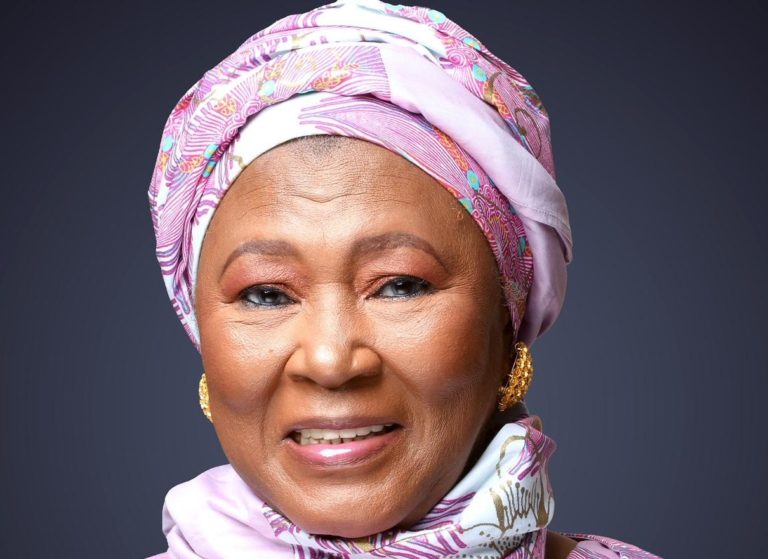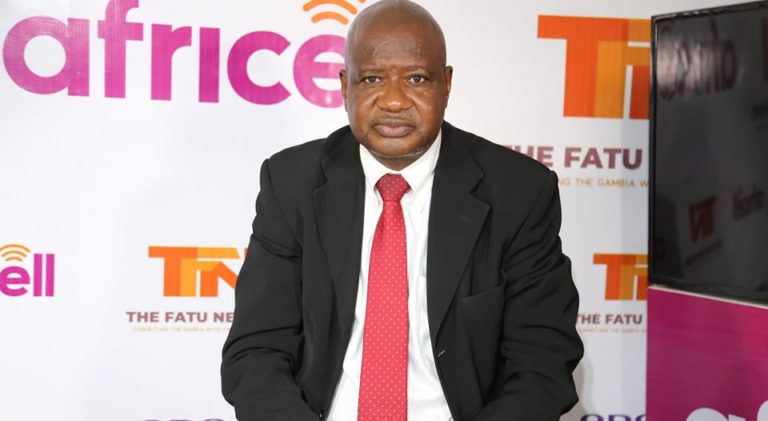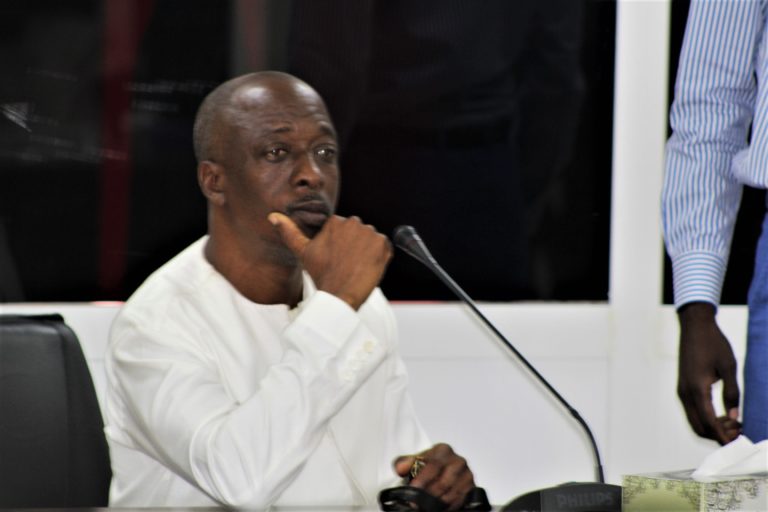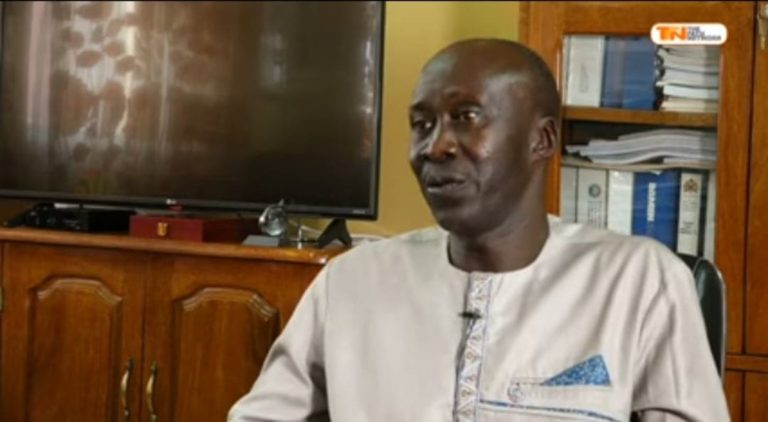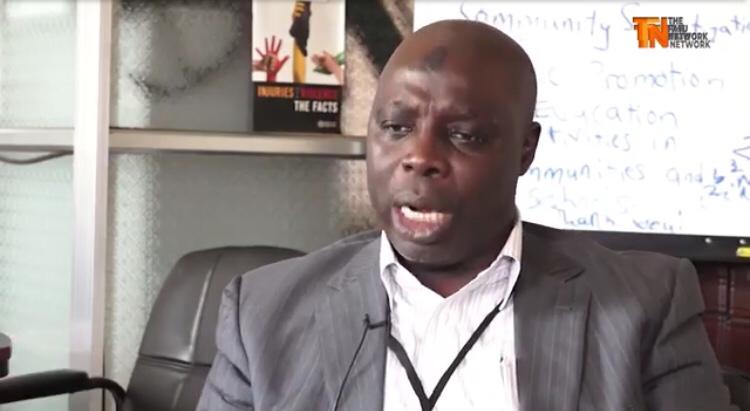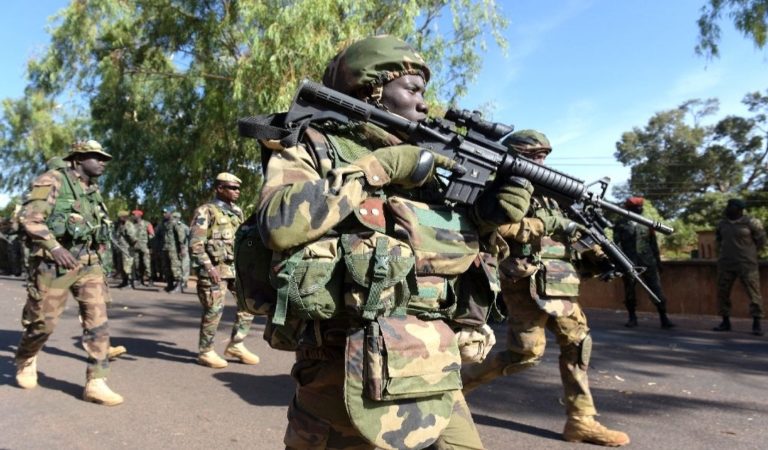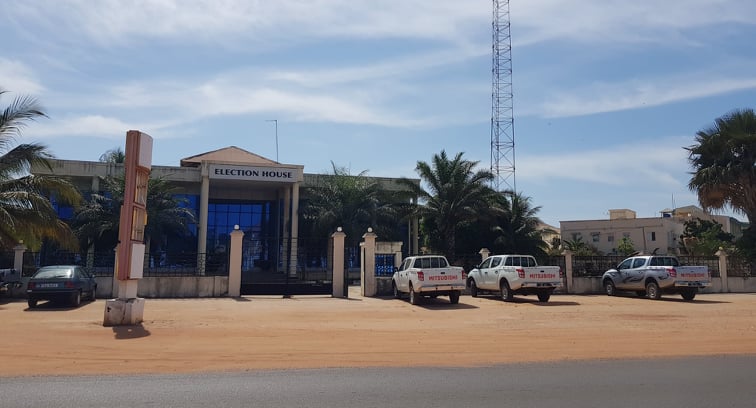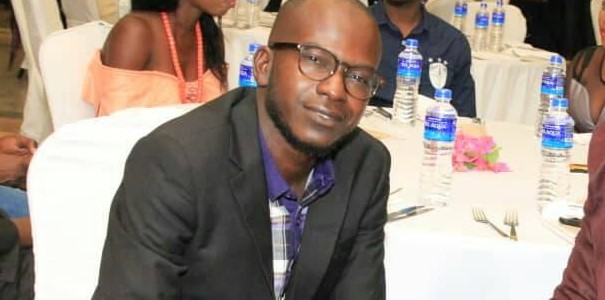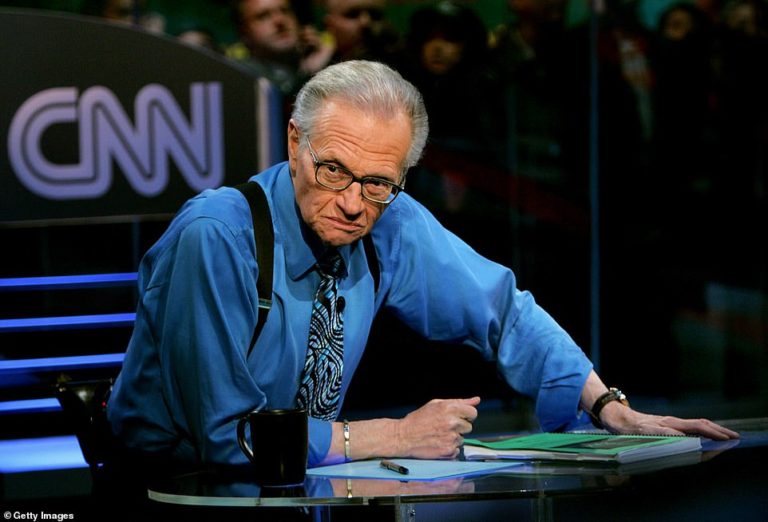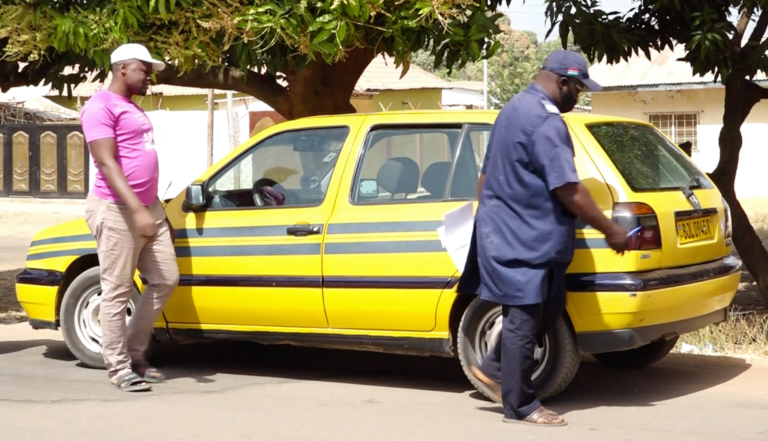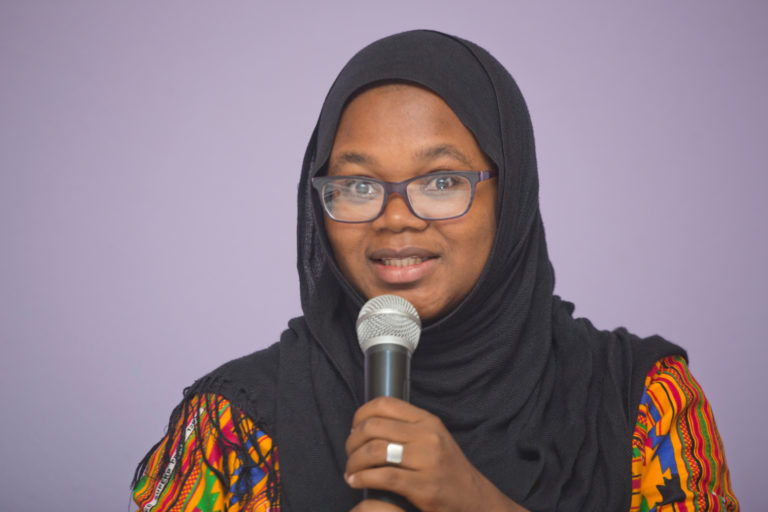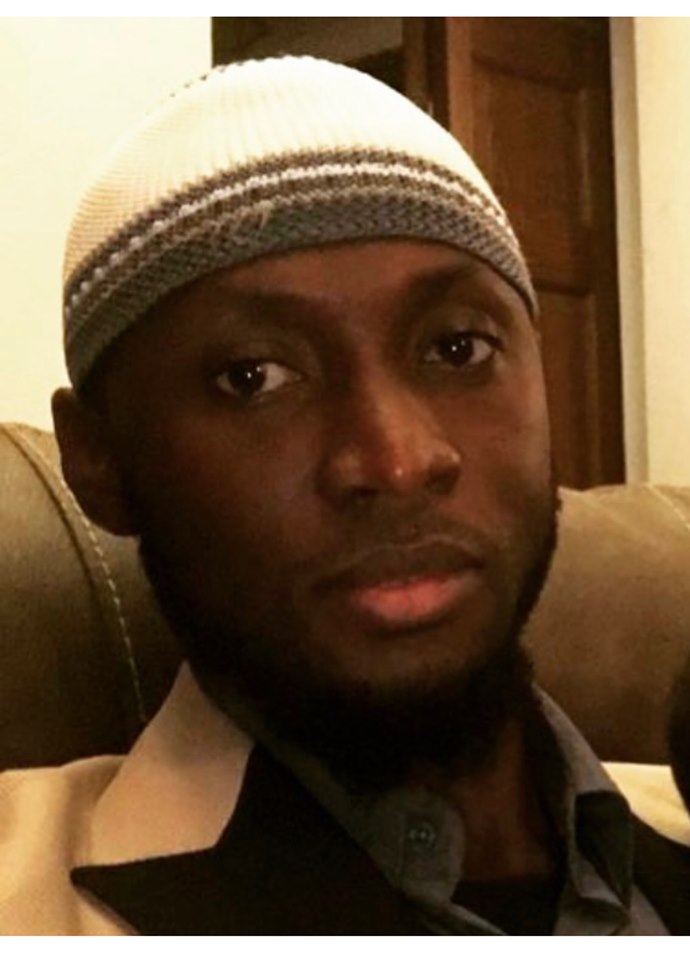By Demba Ali Jawo
Former Gambian Vice President, Mrs. Fatoumata Jallow Tambajang, is vying for Deputy Chairperson of the African Union Commission (AUC), and in an exclusive interview with veteran Gambian journalist and former Minister of Information and Communication Infrastructure, Mr. Demba Ali Jawo, she explains her motivation for wanting to serve in that coveted position in the AU Commission and what she intends to contribute to advancing the cause of African unity and development.
Mrs. Jallow Tambajang had been quite a versatile technocrat who had served in various capacities both in government and the NGO community, as well as for several years in the United Nations system. She had been a seasoned technocrat with a lifetime service in both the public sector and civil society and she has had a distinguished career with the United Nations Development Program (UNDP), both as Chief Technical Adviser as well as UNV/UNDP Adviser on Gender, Health and Population in Liberia. She had also served as Vice-President of the Republic of the Gambia; Minister of Health, Social Welfare and Women’s Affairs; and Policy Adviser on Women to three successive Presidents of The Gambia. She also served as Chairperson of the National Women’s Council; and Women’s Representative to The Gambia National Economic and Social Council. Mrs. Jallow Tambajang also served as UNDP Chief Technical Adviser on Gender and Policy Reforms for the Enforcement of the Convention on the Elimination of Discrimination Against Women (CEDAW) and UN Resolution 1325. In addition to being UNV/UNDP Adviser on Gender, Health and Population in Liberia; she also served as UNDP Gambia Financial Manager; Thematic Leader in many sectors; Chairperson of the UNDP Staff Association, Staff Performance Management and the Staff Training and Asset Control Committees.
Mrs. Jallow Tambajang had been a trailblazer, a highly qualified, competent, conscientious and reputable Gambian, and an eminent Pan-Africanist with a Bachelor of Arts degree in French from the University of Nice, France. She has also had over 35 years expertise and extensive work experience in international development management, governance, the empowerment of women and youth, diverse and resilient political leadership positions in The Gambia, across Africa and globally.
On the political front, Mrs. Jallow Tambajang has been credited with playing a pivotal role in the formation of an opposition coalition in 2016, which eventually defeated the dictatorial regime of former Gambian President Yahya Jammeh in the 2016 presidential elections. She championed the establishment of an unprecedented Coalition of seven Gambian opposition political parties and four civil society organizations, which ushered in a peaceful democratic dispensation in the country leading to her being voted as African Woman of The Year in 2017 by the New African Magazine. Her role in helping to resolve the political impasse and addressing the post-impasse political crises during the transition period, which made it possible for the new government to win the support of many African countries and the international community, tells quite a lot about her character and resilience.
Therefore, Mrs. Jallow Tambajang’s nomination by Gambian President Adama Barrow for the distinguished position of Deputy Chairperson of the African Union Commission had been quite welcome by a cross section of Gambians and others who have known or worked with her. Her wealth of experience and dedication to Africa puts her in a very good position to serve the continent at the highest level.
In an answer to the question as to what motivated her to want to serve as Deputy Chairperson of the AU Commission, Mrs. Jallow Tambajang said; “My motivation to serve as AUC DCP is inspired by my dream, passion, and commitment to supporting the AUC Chairperson to accelerate the implementation of the AU 2017 Reform Agenda within the framework of the AU 2063 Agenda.” She said the focus of her support will be to provide proactive leadership in transforming the backbone of the AUC, such as “the office of the deputy chairperson, into a center of excellence by ensuring good governance, transparency and accountability to policy compliance in the management of human, financial assets and agreements, delivery of efficient and quality services to all stakeholders, gender balance and merit-based staff recruitment, deployment, promotions, and solidarity, building winning teams and strategic partnerships/(south-south and international cooperation) as well as promoting applications of new technologies to ensure productivity and efficient performance of the AUC.”
Mrs. Jallow Tambajang went further to state that if ever she gets the position, her approach to gender issues would be to strategically support the Department of Gender and Women Development through the sharing of her expertise in order to obtain gender balance and empowerment in all echelons of the AU Commission, engendering policies and programs, including budgets, recruitment, and retention of competent staff and gender consultants as well as supporting strategic partnerships with women civil society organizations with a view to facilitating the effective implementation of the AUC Gender Agenda.
On the question that the AU was not being quite visible at the grassroots level in Africa, and what she thought should be done to bring the AU Commission closer to the people, Mrs. Jallow Tambajang said the AU can transform its present limited support to African grassroots by strengthening partnerships of the AU Commission and outsourcing its relevant development programs and services to credible NGOs, Civil Society Organizations (CSOs), and the private sector within the framework of clearly defined Memoranda of Understanding (MoU) and Performance Contracts to ensure quality and accountable delivery of programs and services.
On whether her candidature had obtained the endorsement of the Economic Community of West African States (ECOWAS), she said, “my candidature has been endorsed by the ECOWAS Authority, as required by the AU Commission nomination procedures. The procedure requires nominating member states to secure the endorsement of their candidates from their respective sub-regional authorities before submitting these to the AU Commission.” It is therefore clear that she has received the full backing of the ECOWAS Authority of Heads of State and Governments.
As to what message she had for Gambians and Africans in general, Mrs. Jallow Tambajang urged her compatriots and other Africans supporting her candidature to continue campaigning strategically and vigorously for her as well as to pray for her success, which by extension she said would be the pride of the country. “This would be a fulfillment of the AU Constitutive Act and AU Agenda 2063 regarding Gender Parity through recruitment of competent and committed African women experts in the AUC, in general, and in the DCP position, in particular, when the chairperson is a male,” She concluded.
What would Mrs. Jallow Tambajang’s election to the coveted position of Deputy Chairperson of the African Union Commission mean for the ECOWAS sub-region and the Gambia in particular? The answer is quite obvious. Her vast experiences in both public service and the UN system would have quite a positive impact on both ECOWAS and the AU Commission, particularly in the implementation of the 2017 AU Reform Agenda and Agenda 2063, which are both flagship programs of the AU Commission. Her election would also no doubt be a morale booster to all Gambians, especially the women folk to see for the first time a Gambian occupying such a high position in the continental body.
We should therefore all wish Mrs. Jallow Tambajang success in her endeavours.

